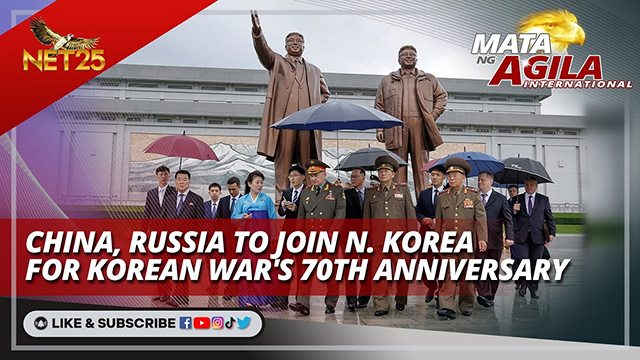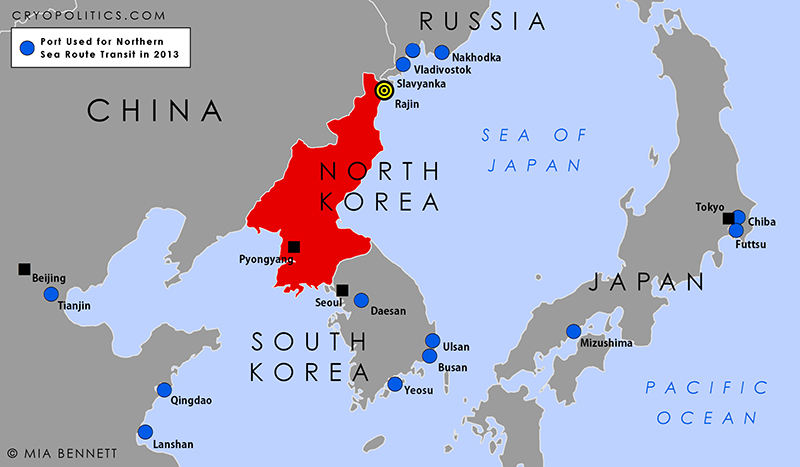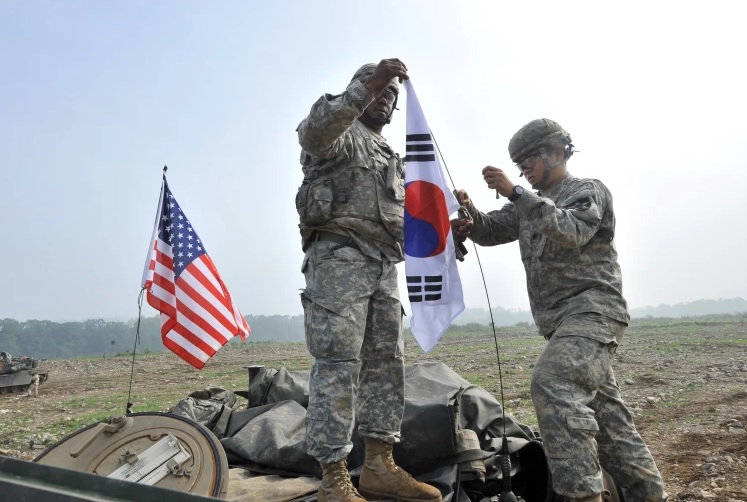 Pic: Philippine television
Pic: Philippine television
The three-day state visit on July 25-27 by Russian Defence Minister Sergey Shoigu, accompanied by a military delegation, to Pyongyang is the first-ever such high-level visit from Moscow in the post-Soviet era. Shoigu’s meeting with the North Korean leader Kim Jong Un altogether elevates what would have passed as a friendly gesture by the Kremlin on the 70th anniversary of the armistice that led to a cessation of Korean War hostilities to an altogether different universe.
At the most obvious level, it punctures a hole into the iron curtain of sanctions that the US built around North Korea. But Shoigu’s visit, coinciding with the Africa Summit in St. Petersburg chaired by President Vladimir Putin, needs to be seen as part of Russia’s message that it has returned with a bang on the centre stage of world politics, stresses M.K. Bhadrakumar, Indian Ambassador and prominent international observer.
The icing on the cake was a conducted tour of North Korea’s arsenal of missiles capable of carrying nuclear warheads, including its newest ballistic missile achievement Hwasong-18, which Kim personally undertook for the Russian military delegation.
 Photo: El País English
Photo: El País English
The North Korean News Agency [NKNA] reported that Shoigu handed over a hand-written letter from Putin to Kim.
Russia’s Defense Ministry said Shoigu’s visit “would contribute to strengthening bilateral military ties and mark an important stage in the development of cooperation between the two countries.”
The accent in the North Korean readout is unmistakably on defence and security concerns, calling attention to the volatile environment in the Far East, and specifically on “strategic and tactical collaboration and cooperation.” A new page is possibly opening.
Shoigu’s visit took place alongside the visit by Li Hongzhong, vice chairman of China’s National People’s Congress Standing Committee, signalling Russia and China “stand close” to North Korea — to borrow from a Global Times commentary — in response to the Biden Administration accelerating the deepening of a trilateral alliance between Washington, Tokyo and Seoul.
Washington is taking advantage of the political transition in South Korea with the election of the pro-western South Korean president Yoon Suk-Yeol last year in May who reversed his predecessor Moon Jae-In’s independent foreign policy trajectory toward Moscow and Beijing and altogether gave up the efforts to work out a detente with Pyongyang.
The US approach to the Far East draws comparison with its strategy in the Middle East where also it used to whip up Iranophobia and block any regional security process from crystallising, which helped boost its military presence in the region and promoted massive scale of arms exports. The main difference lies in the thrust of Washington’s Far East strategy that lies in containing China and Russia.
There is no question that the US is aggravating the situation in Asia by provoking Pyongyang and undermining the situation on the Korean Peninsula to keep it in a state of suspended animation that can be revisited anytime. The recent successive visits in July by two US nuclear submarines to the South Korean naval bases is a case in point.
Plainly put, this creates synergy for the US’ capacity to counter the Sino-Russian axis in the Asia-Pacific region. Izvestia newspaper reported last week quoting defence ministry sources in Moscow that a strengthening of Far East deployment is under consideration and that may include the basing of strategic missile carriers Tu-160 “White Swan” in the Amur region — a multi-mode supersonic strategic bomber with variable wing geometry, designed to hit in the deep rear at speed up to 2000 km/h.
However, the geopolitics of the Far East has other dimensions too. The commercial value of the Arctic shipping route is in the spotlight, “which is an important area where China and Russia have potential and should strengthen collaboration,” Global Times wrote this week.
Russia is currently testing the Arctic shipping route with a cargo of crude oil for China, which is expected to arrive on August 12 at Rizhao in East China’s Shandong Province. This route could reduce the maritime distance between Europe and Northeast Asia by almost one-third, compared with the Suez route, which is currently used for most of the Russian oil exports to China and India.
No doubt, climate change fuels interest in Arctic shipping. But this is also setting a new stage of global power competition, involving both political and economic interests for trade between Asia and Europe. The strategic significance is profound, since the Northern Route is not under American control, unlike Malacca Straits.
Suffice to say, the deepening cooperation between the Chinese and Russian navvies, especially joint patrol, etc. — is a game changer in the geopolitics of the Far East and Western Pacific.
Where does North Korea come in? Simply put, Rajin Port, located on North Korea’s northeast coast, happens to be the most northerly ice-free port in Asia.

Rajin could become a “logistics hub” if it is linked into the Trans-Siberian Railway. Already, there is a railway connecting Russia and North Korea via the crossing at the Tumen River to reach the port at Rajin (as per a 2008 agreement signed between the railways of the two countries.
Indeed, the US plot to keep tensions high in the situation surrounding North Korea is self-evident. To really turn Rajin into a logistics hub would likely require massive changes to the political situation on the Korean Peninsula.
Shoigu’s pathbreaking visit to Pyongyang has a much bigger agenda to integrate North Korea into the geoeconomics of Eurasia. To view it in zero-sum terms will not do justice to Russia’s intellectual resources to plan for the future with a far-sighted vision. Don’t be surprised if Shoigu’s talks in Pyongyang will figure in Putin’s forthcoming visit to China in October with focus on the Belt and Road Initiative, concludes M.K. Bhadrakumar.
 U.S. military in South Korea sounds alarm.
U.S. military in South Korea sounds alarm.
Photo: NBC news
China, North Korea and Russia commemorated the 70th anniversary of the armistice agreement that ended the 1950-53 Korean War, with Chinese and Russian delegations meeting with the country's top leader Kim Jong-un and other senior officials, and attending a series of festive events in Pyongyang, writes Chinese ‘The Global Times’.
Chinese experts said China, Russia and North Korea are all facing pressure and threats from the US-led military alliance in the Korean Peninsula, the Asia-Pacific region and Europe, and this kind of situation is similar to the world in the 1950s, and by jointly commemorating the armistice anniversary, the three countries are sending a strong signal that the US should learn from its lesson in the peninsula and avoid repeating mistakes that will eventually bring tragedy to the world and cause great damage to US national strength.
The US, which invaded North Korea in 1950 and suffered a huge failure after a series of battles with the CPV some 70 years ago, is now increasing its provocative and dangerous military activities in the Asia-Pacific region, including the Korean Peninsula and Taiwan Straits, and its act of pushing NATO eastern expansion has ruined the security structure in Europe and caused the terrible ongoing Ukraine crisis, so Chinese analysts urged the US to learn from the serious lessons of history and stop their wrongdoings to avoid the potential danger of new conflicts.
Lü Chao, an expert on Korean Peninsula issues with the Liaoning Academy of Social Sciences, told the Global Times that the situation on the peninsula is becoming increasingly tense due to US deployment of strategic weapons including nuclear-armed submarines and strategic bombers.
"China and Russia sending senior delegations to attend the events in Pyongyang shows the unity and traditional friendship among the Chinese, Russian and North Korean peoples," Lü said. "This will contribute to the peace and stability of the peninsula."
read more in our Telegram-channel https://t.me/The_International_Affairs

 10:38 29.07.2023 •
10:38 29.07.2023 •






















